After the devastating bushfires in south eastern Australia last summer, we decided to visit some of the worst effected areas.
Not to gawk but to spend some money and give back something to these communities that had been so badly hit.
That was not to be.
Once the seriousness of the COVID-19 pandemic became obvious and we went into lockdown, no travel, even so close to home, was possible.
Now, twelve months on, we decided to deliver on our promise and make our bushfire relief drive.
March 16, 2021. Melbourne to Lakes Entrance.
Our first day away consisted of a rather longish drive to Lakes Entrance. This was broken with a coffee and lunch stop in Yarragon. This is a cute little ‘Coffee break town’ that’s just off the Princes Highway and set up for passing tourists, truckies and also the Gippsland Railway.
On the first night of our break, at the suggestion of the motel owner, we ate at the Kalimna Hotel.
We needed to get a taxi there as it was a long walk, up a steep road, heading out of town.
This was a basic pub with a stunning view over the lakes.
Having become used to getting craft beer in many pubs these days, it was rather disappointing to discover that Great Northern Bitter was the most exciting brew they had on offer.
Believe me, this is certainly not a beer to write home about.

Stony Creek Trestle Bridge (1916)
March 17, 2021. Lakes Entrance.
As we had two nights in Lakes Entrance, and the weather was fine, we decided to make this a day of walking.
Our adventure took us from the Log Crossing Picnic Area in Colquhuon State Forest to the Limestone Box Forest Track, then Armstrongs Track to the Gippsland Lakes Discovery Trail and Tramway Walk.
The aftermath of the bushfires was evident, but the regrowth had done a wonderful job of restoring the bush tracks.
The original Mississippi Creek Tramway was developed in the 1900s and used until the 1930s. It transported granite from a quarry in the area to the developing Lakes Entrance township, fishing port and tourist area.
In 1870 the town was originally called Cunninghame but became Lakes Entrance in 1915.
After the walk we then drove along the Uncles and Old Colquhoun Roads to the Stony Creek Trestle Bridge.
Built in 1916, when the rail line from Melbourne to Bairnsdale was extended to Orbost, it is the largest bridge of its type in Victoria and listed as an historic site.
Built from ironbark and grey box timber, it is 247 metres long and 20 metres high and was in service for over 60 years. Badly damaged by bushfires in 1980 it was finally closed in 1987.
That night we had dinner at Sodafish, a floating seafood restaurant right in the middle of the harbour’s fishing fleet.
Again, this restaurant was booked at the suggestion of the owner’s of the Sandbar Motel.
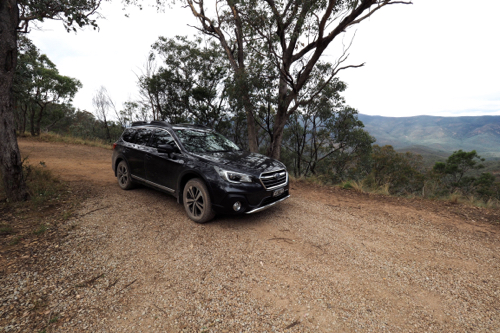
Suburu on Wheelers Hill (699m) McKillops Road
March 18, 2021. Lakes Entrance to Marlo via McKillops Road (C611).
Today we decided to drive one of the; ‘Most hazardous and dangerous roads in Australia’ as it has been described by the website ‘dangerousroads.org’
The McKillops Road drive is 80km along a gravel road, in the Snowy River National Park. Yes there are many narrow sections, with blind corners but it certainly isn’t the hairiest drive I have ever encountered.
We would have thought twice about taking the road if it had been wet, as there are many tight corners with steep drop-offs to the side.
The AWD capabilities of the Subaru were very useful and at no time did I feel as though we were in any danger.
In fact our drive from Beacon, in New York State, back to Harlem, in New York City in November 2017 was the the worst drive I have ever done – and that was on a sealed road in the rain.
A man made feature of the McKillop’s Road drive, is McKillop’s Bridge. This is situated about half way along the C611, near the confluence of the Snowy and Deddick Rivers.
The bridge is made of welded-steel trusses with reinforced-concrete piers and was built over the Snowy River between 1931 and 1936.
It is 255 metres in length and originally constructed as a stock bridge.
From there we drove to Marlo where we were booked into the Marlo Hotel.
There isn’t much in Marlo and the hotel seems to be the go-to destination, as that night the restaurant was full.

Kookaburra at the Mallacoota Coastal Reserve Caravan Park
March 19, 2021. Marlo to Mallacoota via Cape Conran.
The clouds have increased and the skies are much darker. This is all part of a large weather front that is developing over NSW.
Today we were driving the rather short distance from Marlo to Mallacoota, with a diversion to Cape Conran.
We had a good breakfast and excellent coffee in Marlo at the Snowy River Tackle and Cafe complex. There you can get live worms for your bait and Avo on Toast for your breakfast.
Just out of Marlo we could see, what is described on the map as, the mouth of the Snowy River.
This now appears to be blocked by a sand bar, as no exit was visible.
Steph, Ev’s partner, has spent many holidays camping at Cape Conran with her family, so we decided to visit it ourselves.
The bushfires have certainly left their mark here and blackened trees can be seen almost reaching down to the water’s edge.
We then drove on to Mallacoota and, by total coincidence, checked into Bruce’s Waterside Units.
We were staying in the Captain’s Cabin, which was in fact an old school house.
The rain was threatening and we decided to go for an afternoon walk to discover the area before it got any worse.
Mallacoota is a haven for campers and fishermen, with much of the town taken up with caravan parks. Many of the campsites had boats parked next to the tents, vans and motorhomes.
It was in the Mallacoota Coastal Reserve Caravan Park that we discovers some wonderful Australian wildlife, in the form of two Kookaburras and a Koala.
They were every cooperative and I managed to get some good snaps.
That night we ate at the Mallacoota Hotel, which was just around the corner from the Captain’s Cabin.
The food was typically pub fair with a huge variety and well presented. I managed to find Balter XPA on tap. This was also available at Lakes Entrance and Marlo and a great improvement on the Great Northern Bitter that I had to endure on the first night.

Bushfire aftermath at Genoa Creek Falls
March 20, 2021. Mallacoota.
The rain has come.
The severe weather warnings for NSW have now moved south over the border into Victoria.
With the intermittent showers we decided that the best thing was to go for a drive around the Mallacoota area.
We discovered the Genoa River at Gipsy point on the Mallacoota Inlet.
This is an area for kayaks, fishermen and bird watchers.
No sooner had we arrived than a flock of swallows swooped down to where we were standing.
I believe that the swallow is one of the hardest birds to photograph. No sooner do they land than they take off again.
Here it was different, they seemed to want to be photographed. Maybe they had missed the tourists over the last twelve months or they were just tired and needed a break.
Anyway, they did settle long enough for me to change to a telephoto lens and get some shots.
It was then off to Genoa Creek Falls, an area that seems to have been particularly hard hit by the fires.
The falls are just off the Princes Highway, on a small, easy to miss track. After you park the car, there is a short walk and a flight of timber stairs leading down to the falls.
As a result of the bushfires, the stairs have been rebuilt and are now brand new. The bush around the falls is dotted with blackened tree trunks, fallen logs and singed bark hanging from the branches.
I imagine during the winter, or after heavy rain the falls might be rather spectacular, but the day we visited there was barely a trickle running over the large red boulders.
After our drive we returned to the Captain’s Cabin and then it started to pour down.
That night we returned to the Mallacoota Hotel for dinner, as we hadn’t managed to find anywhere better and the beer, wine and food was ok.
March 21, 2021. Mallacoota to Mirboo North.
There was more heavy rain overnight and now it has spread to Melbourne. It looks like a wet drive to Mirboo North.
The main reason we were visiting Mirboo North was to break the long return trip to Melbourne. It was a bonus that within this very small community is situated the Grand Ridge Brewery.
Being established in 1989, Grand Ridge is one of the oldest craft breweries in Australia.
As the website ‘craftypint.com’ puts it:
“The elder statesman of the Victorian microbrewery scene, Grand Ridge began offering full-flavoured ales to a nation of lager drinkers more than 20 years ago.”
This was an old article in Craftypint and in fact the brewery has been in operation since 1989. They therefore have been challenging beer drinker’s taste buds for over 30 years.
I had booked at the restaurant, not knowing how busy it might be on a Sunday night.
I shouldn’t have bothered.
There were only about six tables in a space that could hold far more. We went to the bar for a pre-dinner drink and that was even less crowded, with only on other person drinking there.
We had been told that the restaurant had recently been taken over by new owners. It had previously been run by the management of Grand Ridge. I think that the loss of trade during the pandemic and the lack of available staff since, had forced them to rationalise their business model.
The food was excellent as was the service and the beer that I started with. This was a West City Neipa 7.5%. The ‘Neipa’ stands for New England IPA and it is now made in the Grand Ridge Brewery.
Like so many good brew pubs, Grand Ridge provides their drinkers with a wide range beer styles. There were three sets of taps, each serving six brews.
We were staying at the aptly named 1st T Motel, which was right next to the Mirboo North Golf Club.
According to Google Maps it was meant to be a 20 minute walk from our motel to the brewery, but we took a short cut through the golf course, and did it in ten.
March 22, 2021. Mirboo North to Melbourne.
The motel provided us with breakfast, of sorts. This consisted of four slices of plain white bread with sachets of Vegemite, jam, honey and peanut butter. There was also a choice of Cornflakes, Rice Bubbles or Special K. Which meant that our entire breakfast was totally lacking in any nutritional value.
After a breakfast like that we needed a strong coffee, before the relatively short drive back to Melbourne.
We found that at Lamezleighs Cafe and Bar, which was on the main street of Mirboo North. The coffee was good but they did charge us for a mug when we had only ordered, and been served, a cup.
In a way I guess we were still putting money back into the community, but not the way we had intended.
The weather was still threatening but the rain did hold off.
It was a strange adventure, initiated by the devastating bushfires of 2020, postponed by the world wide COVID-19 pandemic and then interrupted by the ‘One-in-100-years’ floods in NSW.
It does seem that we are lurching from one disaster to another.

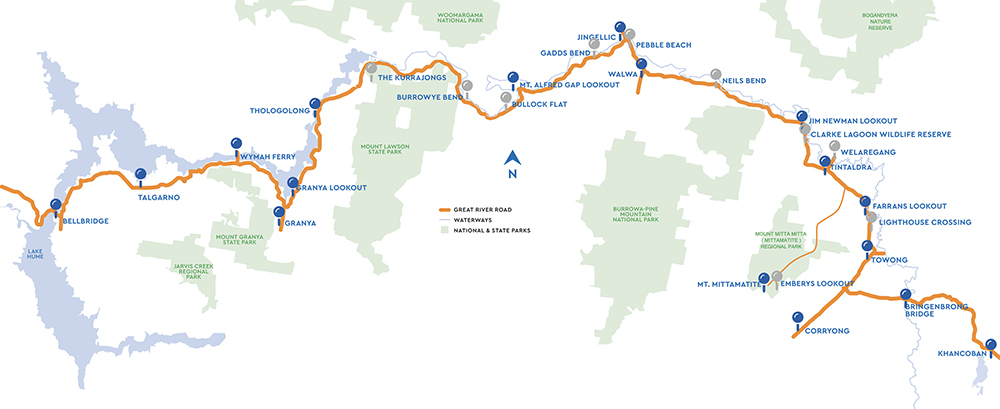




















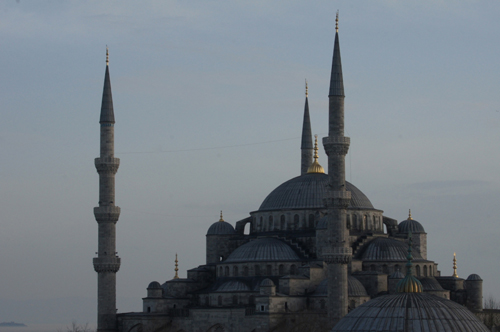





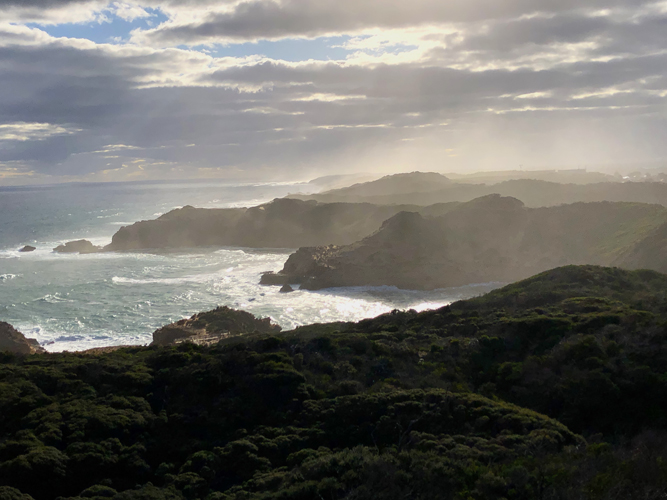
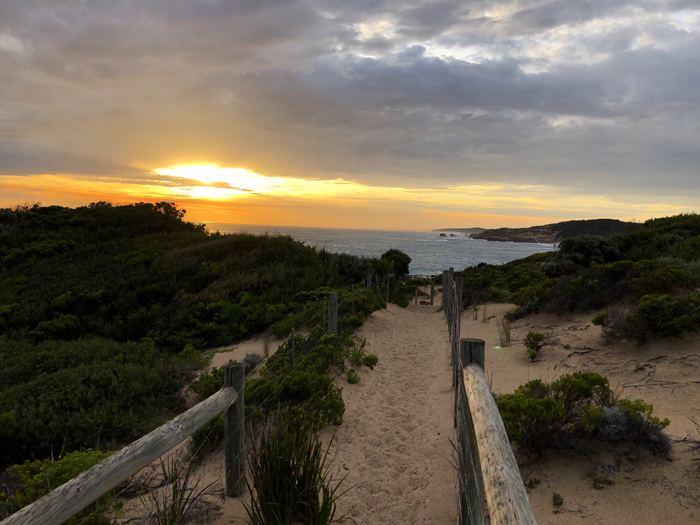
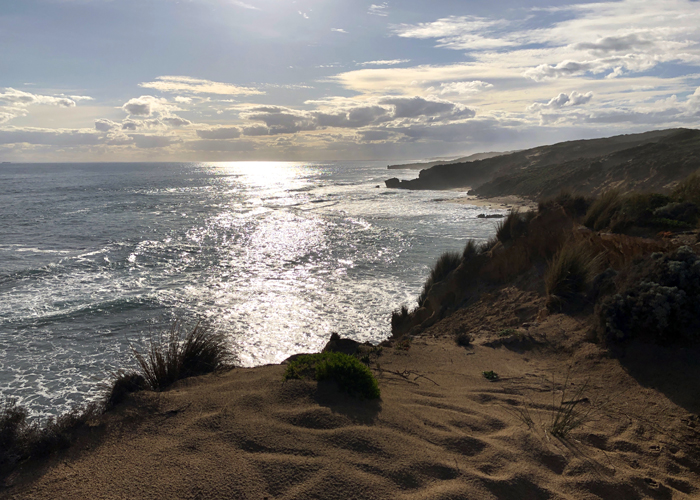
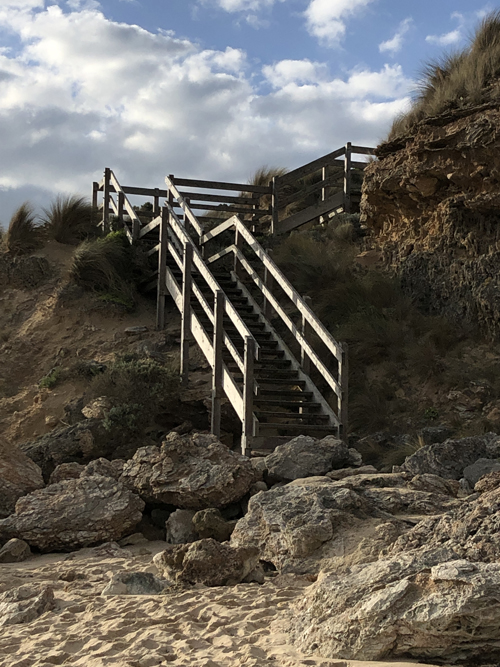
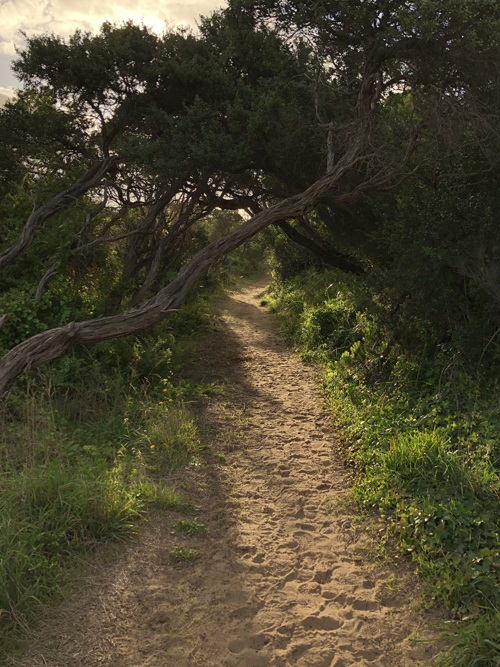























Hot Dog.
Sunday, July 25th, 2021I spotted this little Long Haired Dachshund, or Sausage Dog, on one of my recent beach walks.
I kicked myself afterwards for not grabbing a snap of him in his wonderful winter coat.
Then, after the walk, when I was having a coffee, there he was.
It was meant to be – just like the coat.
Posted in Comment, Design, Good ideas | No Comments »